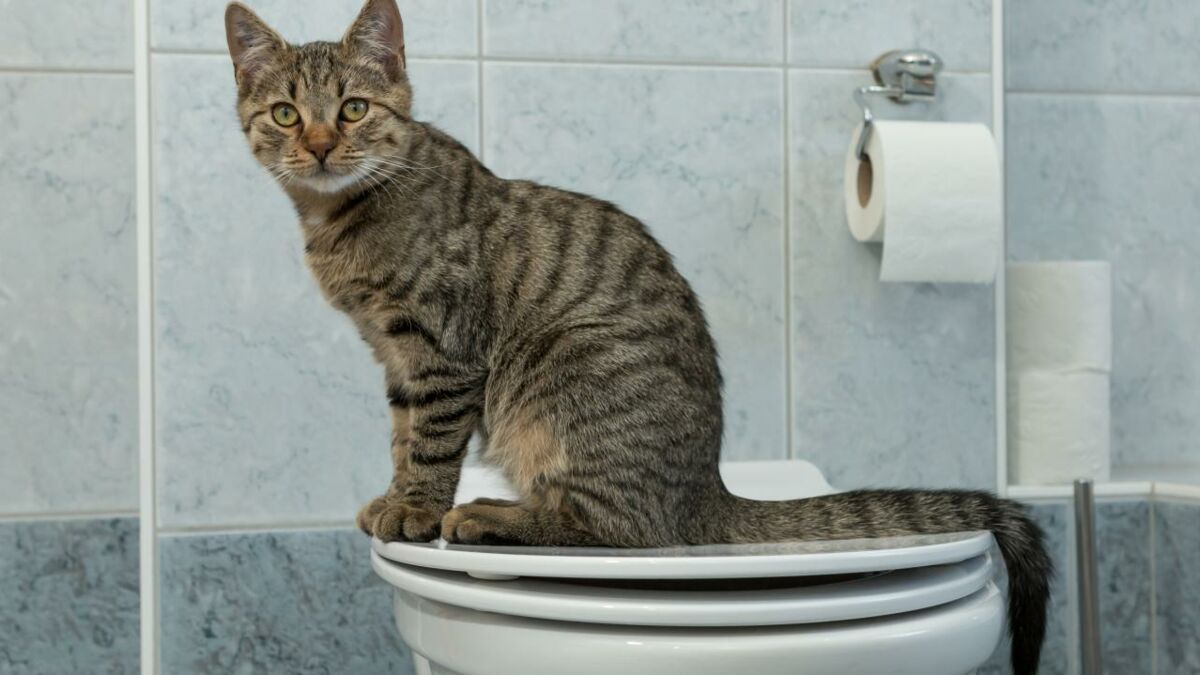Why Flushing Cat Poop Down Your Toilet Can Cause Problems - Tips for Safe Handling
Why Flushing Cat Poop Down Your Toilet Can Cause Problems - Tips for Safe Handling
Blog Article
The article in the next paragraphs about Can You Flush Cat Poo or Litter Down the Toilet? is relatively captivating. Read it for your own benefit and see what you think of it.

Introduction
As pet cat owners, it's important to bear in mind exactly how we dispose of our feline buddies' waste. While it might seem convenient to purge pet cat poop down the toilet, this method can have destructive consequences for both the setting and human wellness.
Alternatives to Flushing
Fortunately, there are much safer and extra liable ways to get rid of pet cat poop. Take into consideration the following alternatives:
1. Scoop and Dispose in Trash
The most typical approach of getting rid of cat poop is to scoop it into a biodegradable bag and throw it in the trash. Make sure to utilize a committed clutter inside story and dispose of the waste promptly.
2. Use Biodegradable Litter
Choose eco-friendly pet cat clutter made from products such as corn or wheat. These clutters are eco-friendly and can be securely taken care of in the garbage.
3. Hide in the Yard
If you have a backyard, take into consideration hiding pet cat waste in an assigned location away from vegetable yards and water resources. Make certain to dig deep adequate to prevent contamination of groundwater.
4. Install a Pet Waste Disposal System
Invest in a pet garbage disposal system particularly developed for cat waste. These systems use enzymes to break down the waste, reducing smell and ecological effect.
Health and wellness Risks
In addition to environmental issues, flushing pet cat waste can additionally pose health dangers to human beings. Pet cat feces may include Toxoplasma gondii, a parasite that can cause toxoplasmosis-- a potentially serious disease, particularly for expectant ladies and individuals with damaged immune systems.
Environmental Impact
Flushing pet cat poop presents dangerous microorganisms and parasites right into the water system, positioning a significant danger to aquatic ecological communities. These pollutants can negatively influence marine life and concession water high quality.
Verdict
Accountable pet possession extends past supplying food and sanctuary-- it also includes appropriate waste monitoring. By avoiding flushing feline poop down the commode and choosing alternate disposal techniques, we can reduce our ecological impact and safeguard human wellness.
Why You Should Never Flush Cat Poop Down the Toilet
A rose by any other name might smell as sweet, but not all poop is created equal. Toilets, and our sewage systems, are designed for human excrement, not animal waste. It might seem like it couldn’t hurt to toss cat feces into the loo, but it’s not a good idea to flush cat poop in the toilet.
First and foremost, assuming your cat uses a litter box, any waste is going to have litter on it. And even the smallest amount of litter can wreak havoc on plumbing.
Over time, small amounts build up, filling up your septic system. Most litter sold today is clumping; it is made from a type of clay that hardens when it gets wet. Ever tried to scrape old clumps from the bottom of a litter box? You know just how cement-hard it can get!
Now imagine just a small clump of that stuck in your pipes. A simple de-clogger like Drano isn’t going to cut it. And that means it’s going to cost you big time to fix it.
Parasitic Contamination
Believe it or not, your healthy kitty may be harboring a nasty parasite. Only cats excrete Toxoplasma in their feces. Yet it rarely causes serious health issues in the cats that are infected. Most people will be fine too if infected. Only pregnant women and people with compromised immune systems are at risk. (If you’ve ever heard how women who are expecting are excused from litter cleaning duty, Toxoplasma is why.)
But other animals may have a problem if infected with the parasite. And human water treatment systems aren’t designed to handle it. As a result, the systems don’t remove the parasite before discharging wastewater into local waterways. Fish, shellfish, and other marine life — otters in particular — are susceptible to toxoplasma. If exposed, most will end up with brain damage and many will die.
Depending on the species of fish, they may end up on someone’s fish hook and, ultimately on someone’s dinner plate. If that someone has a chronic illness, they’re at risk.
Skip the Toilet Training
We know there are folks out there who like to toilet train their cats. And we give them props, it takes a lot of work. But thanks to the toxoplasma, it’s not a good idea.

We hope you enjoyed our topic on How to Dispose of Cat Poop and Litter Without Plastic Bags. Thank you for taking the time to browse our content. Enjoyed reading our posting? Please share it. Let somebody else discover it. I am grateful for your time. Visit again soon.
Booking Page Report this page